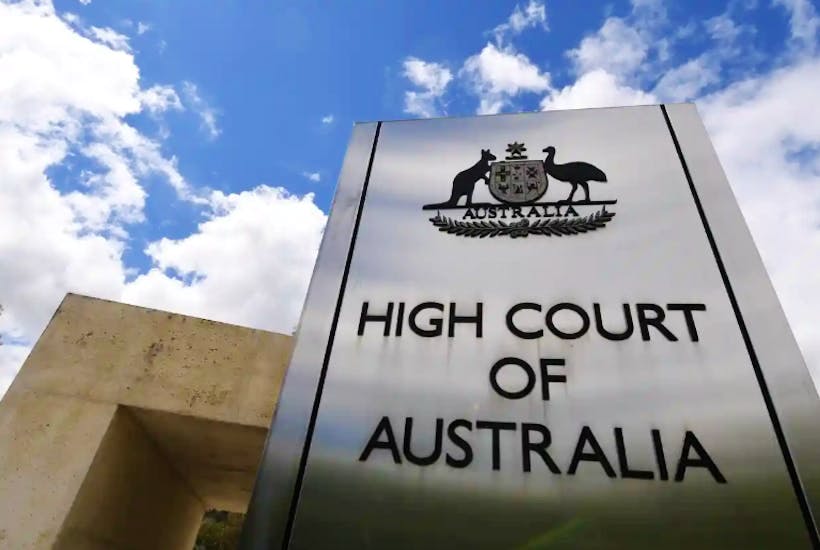When I was young I played a lot of competitive team sports. One of them was baseball on teams coached by my dad, who had been a very good baseball player in his day. From the first year my dad got talked into coaching the team he sat me down and told me he’d have to play me – let me on the field – less than all the other boys. It didn’t matter if I was better than them. Unless I was so good, so obviously the best person on the team, he would have to play me the least. It was what had to happen when a dad coached a team.
I think the first year he coached my baseball team I was about 11 or 12 years old and I wasn’t overly pleased by what he said as I was at least the fourth-best player on a team of 12 that fields 9 in a game. It was annoying to be played less than other boys who weren’t as good as I was. But over time I got used to it. And later, when I was older, I realised my dad had been right. First off, it made me work hard to be so good no one could complain if I got played the most. Secondly, and at least as importantly, I came to see that coaches need to be above the complaint of nepotism and favouritism and looking after their own.
I mention that little anecdote because the federal Coalition government last week announced its two most recent appointments to the High Court of Australia. And what immediately struck me when I heard the names was that the last seven years of Coalition governments were in danger of giving the impression that they had contracted out the appointing of our top judges to Ancestry.com.
Think back to 2015 when the then Abbott government opted for a world first and then attorney-general George Brandis announced that Michelle Gordon would replace (wait for it) her husband. Now on the face of it, that is a laughable thing to do; something no other government in any democracy has ever done. I don’t know who walked into Cabinet and said ‘I’ve got this nifty idea, we’ll replace retiring Justice Ken Hayne with his wife.’ Or perhaps it was Brandis’s idea. Whatever led up to it that kind of appointment is a bad idea in the same way a father coaching a sports team and playing his kid more than anyone else is a bad idea. (As an aside, I still get constitutional law professors from overseas ask me if that really happened, that a top judge was replaced by his spouse. It has never happened anywhere else, ever, as I just noted.) Unless Gordon was unequivocally the best candidate going, so much better than everyone else in ability that observers would overlook the incestuous nature of this kind of choice, then no government should do it. And in my view, Gordon didn’t come close to meeting that sort of standard or crossing that type of threshold. Competent is not the same as best in class or even the same as superb. So why go down the Ancestry.com path?
Now I have to confess something. I am a long time critic of unelected judges using approaches to interpretation – almost always constitutional interpretation – to arrogate to themselves all sorts of power that otherwise would rest with the elected branches of government. Bills of rights, by articulating various moral concerns in the vague, amorphous language of rights, are a ready tool allowing judges to do just that. Buy a bill of rights and you simply buy the social policy views of the top judges and the lawyerly caste. But this can happen even without such a tool. Here in Australia, we have no bill of rights at the national level and yet our top judges have used very inventive, implausible interpretive approaches to ‘discover’ implied freedoms. And then, earlier this year, they did it again in the Love case in order to create some sort of identity politics, bastardised race-based exception to one of the s.51 heads of powers – a judicially created limit on parliament’s sovereignty to deport non-citizens that has no obvious (I would say not even a remote) connection to anything in the actual Constitution. As I’ve written in various places, the Love decision was to my mind a disgrace. Indeed it was that very case that seemingly pushed this Morrison government to start to take the issue of appointments to our top court more seriously.
You can imagine my surprise, then, to read that one of the new appointees was the daughter of a former Chief Justice of the High Court. Jacqueline Gleeson is the daughter of Murray Gleeson, who retired from the court back in 2008. So unlike with the Gordon appointment, at least the Libs this time waited a dozen years before replacing one family member with another. But surely I can’t be the only person who thinks this looks awful, especially in the aftermath of the Gordon appointment. Unless you believe Gleeson Jr. was pretty much the most accomplished, most outstanding, better than any other options going candidate then this looks bad. I’ll say it again – it looks as though Attorney General Porter has contracted out the appointment out to Ancestry.com. And it looks bad because where my grievance has always been with a lawyerly caste that accumulates too much power to itself at the expense of democratic decision-making this sort of goes further. I don’t like judicial aristocracies and juristocracy and kritarchy. But now we are verging on going beyond the sort of judicial aristocracy that bill of rights create and that critics like me detest and moving closer to the real thing when it comes to aristocracy. Privilege based on birth and family membership. I really don’t like it.
Sure. Show me undeniable excellence beyond that of all the other potential candidates and I will go for that person whatever his or her background or family name or dad or husband. But the presumption should be against the spouse or the kid getting the job. Maybe I’m an outlier on this. Maybe others don’t see a problem. But, frankly, I think my dad had it right way back when and this government does not have it right.
James Allan is Garrick Professor of Law at the University of Queensland.
Got something to add? Join the discussion and comment below.
Get 10 issues for just $10
Subscribe to The Spectator Australia today for the next 10 magazine issues, plus full online access, for just $10.


























Comments
Don't miss out
Join the conversation with other Spectator Australia readers. Subscribe to leave a comment.
SUBSCRIBEAlready a subscriber? Log in